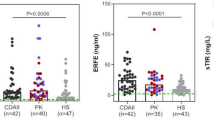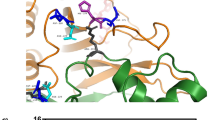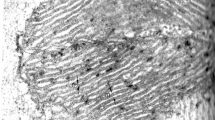Abstract
SINCE the first report by Tanaka et al.1 of non-spherocytic haemolytic anaemia due to pyruvate kinase (PK) deficiency, about twenty further cases have been reported. In patients with this type of haemolytic anaemia, determinations of PK give decreased, but not totally absent, enzyme activities. The remaining activity amounts to 5–20 per cent of the normal. Waller2 first posed the question as to whether there was any real lack of enzyme or whether the disease was due to a structurally changed enzyme protein with decreased affinity to the substrate. He reported two cases where the Michaelis constant of the PK towards phosphoenolpyruvate (PEP) was significantly higher in erythrocytes of patients than in normal human beings.
This is a preview of subscription content, access via your institution
Access options
Subscribe to this journal
Receive 51 print issues and online access
$199.00 per year
only $3.90 per issue
Buy this article
- Purchase on Springer Link
- Instant access to full article PDF
Prices may be subject to local taxes which are calculated during checkout
Similar content being viewed by others
References
Tanaka, K. R., Valentine, W. N., and Miwa, S., Blood, 19, 267 (1962).
Waller, H. D., and Löhr, G. W., Ninth Congr. Intern. Soc. Hematol., Mexico (1962).
Author information
Authors and Affiliations
Rights and permissions
About this article
Cite this article
WIESMANN, U., TÖNZ, O. Investigations of the Kinetics of Red Cell Pyruvate Kinase in Normal Individuals and in a Patient with Pyruvate Kinase Deficiency. Nature 209, 612–613 (1966). https://doi.org/10.1038/209612a0
Issue Date:
DOI: https://doi.org/10.1038/209612a0
Comments
By submitting a comment you agree to abide by our Terms and Community Guidelines. If you find something abusive or that does not comply with our terms or guidelines please flag it as inappropriate.



